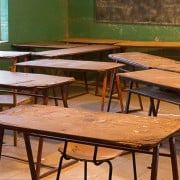|
Getting your Trinity Audio player ready...
|
This week we celebrated the 21st World Teachers Day on 5 October – a day proclaimed by Unesco in 1994. This year’s theme was Empowering teachers, building sustainable societies.
Every day at Corruption Watch, we see teachers who go beyond the call of duty and who put their pupils’ needs ahead of their own. We’ve received numerous reports from teachers who are tired of corruption and who are exposing their colleagues or in many cases, principals, as perpetrators of corruption. Often conditions at schools are challenging – there is a highly controversial teachers’ union, while corruption at higher levels means that schools are under-resourced or funded, although the greater portion of the national budget goes to basic education. Teachers, therefore, are our well-deserved heroes for the week.
A good teacher is a strong role model for future generations, one that may have an impact felt far beyond the classroom. Pupils who see their teachers exposing corruption will be empowered to do the same, while those who see their teachers nonchalantly engaging in corruption, will believe it is acceptable.
“Teachers provide not only a crucial link to our cultural past but also exercise critical influence on the present and the future. Teachers train future citizens on how to think and creatively challenge accepted wisdom, which can threaten the power of tyrants,” said David Gamson, associate professor of education at Pennsylvania State University.
But to achieve this, a teacher needs resources and support. In South Africa, the spending on basic education over 2015/16 is estimated at R203 468-billion, finance minister Nhlanhla Nene revealed in his maiden budget, delivered in February. Over the next three years, roughly R640-billion will go towards basic education. Sadly, not all of this substantial sum reaches its intended destination, because along the way much of the money is diverted into various pockets. The ones who need to benefit most from government’s investment into education – the future leaders of this country – are the ones who lose the most.
“Around the world today, far too many teachers are undervalued and disempowered. There is a mounting shortage of quality teachers, unequal distribution of trained teachers, and inadequate or non-existent national standards for the teaching profession. These are all key contributing factors to wide equity gaps in access and learning. The poorest regions and schools and the earliest grades – those most in need – are often the most affected,” said the UN in its message this year.
We take our hats off to all the teachers who are committed to providing a quality education to our children – despite numerous challenges and often, threats to personal safety because they refused to let corruption go unpunished. We salute you all.







